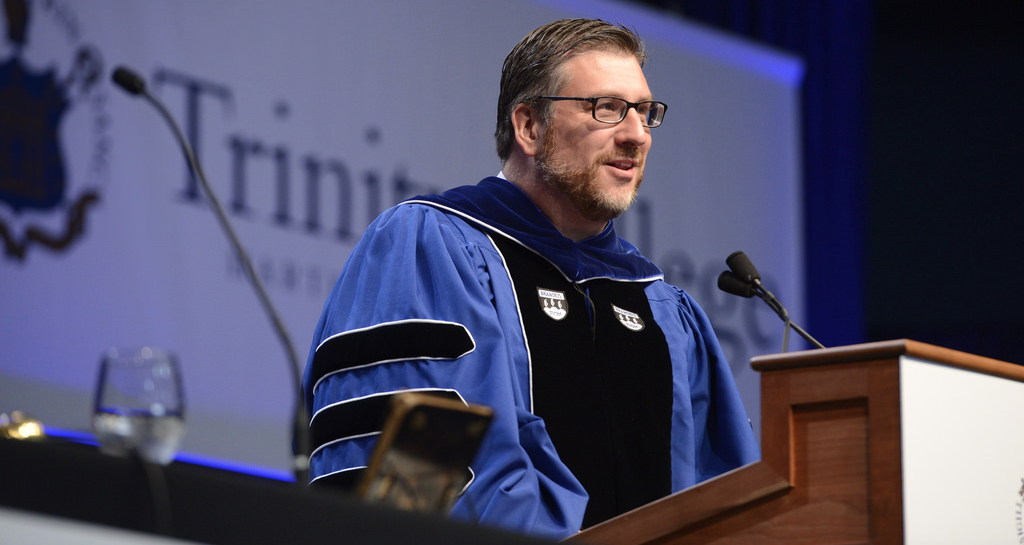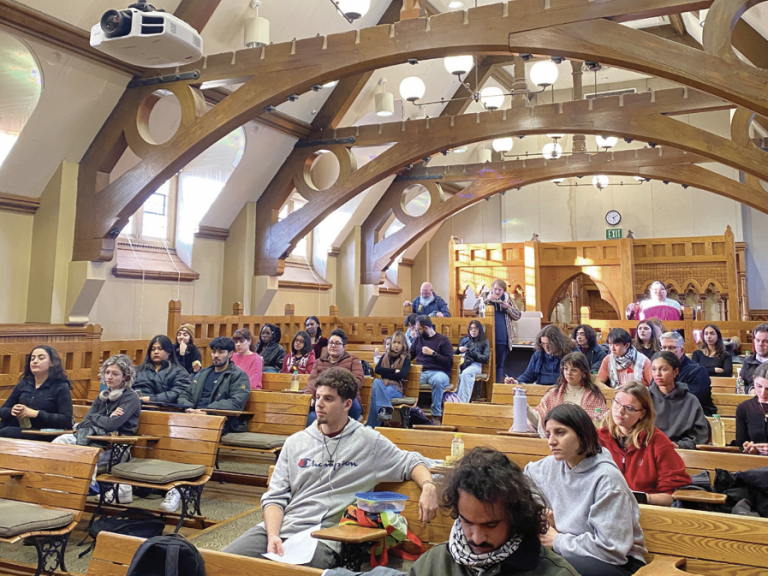By Matt Boyle ’19
Contributing Writer
On Oct. 18, the Political Science and Public Policy and Law Departments hosted a common hour event to discuss the future of this country. Professors Kevin McMahon, Anthony Messina, and Glenn Falk talked about the implications of the 2016 Presidential Election from their different areas of expertise. Professor Adrienne Fulco, the head of the Public Policy and Law Department, served as the moderator. The talk took place in McCook Auditorium where there were barely enough seats for everyone. It seemed every Public Policy and Political Science major was in the room.
Professor McMahon was the first speaker and he dealt with the election’s implications for the Supreme Court. This election is guaranteed to affect the Court because there is currently a vacancy on the bench that Senate Republicans refuse to fill until after the election. Professor McMahon started off by saying that the current Supreme Court up to now has actually been a “largely moderating force.” He admitted this was not true on all issues, but pointed to the fact that the Court has given liberals and conservatives victories on certain issues.
The current situation is extremely tenuous and Professor McMahon emphasized this when he said that if Secretary Clinton appoints a liberal justice, “the Court will be the most liberal it’s been since 1971.” However, if Trump appoints a conservative, the Court will continue to be “as conservative as Justice Kennedy wants it to be.”
Professor Messina spoke next regarding the foreign, particularly European, perspective of the U.S. election. He began by saying that when it comes to whom the rest of the world wants elected, “it is Hillary Clinton by a wide margin.” This is the case not only in Europe, as the Pew Research Center found that a majority of “Japanese, Indians and a plurality of Chinese also endorsed Clinton.”
Beyond that Professor Messina refuted the notion that “Trumpism” is connected to a similar resurgence of right-wing nationalist groups in Europe. He acknowledged that both Trump and European nationalist parties “pedal many of the same prescriptions, for example mass deportations of irregular migrants.” However, he pointed to fundamental differences between the U.S. and European nations that made “Trumpism” different from Europe’s far right. In his opinion the “U.S. was born a liberal democracy, based on individualism, not tribalism, and optimism about the future, not pessimism.” As a result, the rhetoric of Trump is “fundamentally antithetical” to the American creed. European right wing groups, on the other hand, are much more in keeping with the founding principles of European nations and are therefore much more resilient to liberalism.
The final speaker was Professor Glenn Falk who spoke about the election’s potential impact on the criminal justice system. Interestingly, Professor Falk chose to talk more about the vice presidential debate because it was “more substantive” in his opinion. However, he opined that it is questionable if what Mike Pence had said during the debate was in line with Trump’s views because Trump flatly disagreed with his statements about Syria during the second presidential debate.
That caveat aside, Professor Falk said he was happy to see moments where the two vice presidential candidates actually agreed with each other on criminal justice reform. He thought it was a good sign that they both saw the need for reforms like “more community policing and repealing mandatory minimum sentences.”
Professor Falk was also optimistic about the federal justice system in general because he saw “racial discrimination actually being discussed in court.” He was later asked about the potential for Southern states to simply ignore federal criminal justice reform as they have done in the past. He admitted that it was an issue and that the federal prison population was far smaller than the combined state prison population. Nevertheless, he said that the federal government “sets a tone” that can influence the states, even if it is a slow process.
Election Forum Discusses Supreme Court, Foreign Policy







+ There are no comments
Add yours